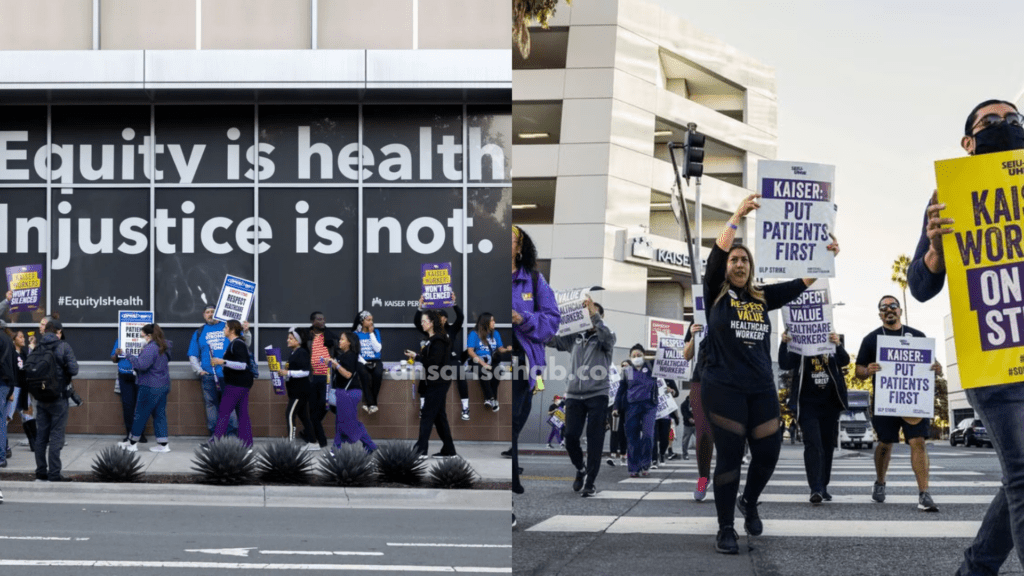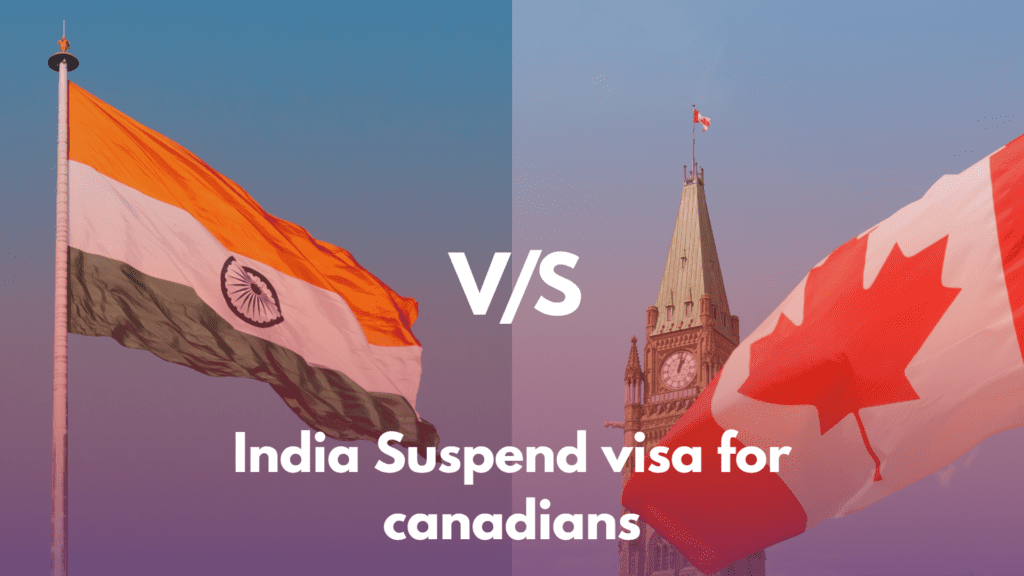
Source: reuters/berkeleyside
The Kaiser Permanente strike, which began on October 4, 2023, is the largest healthcare strike in US history. Over 75,000 workers, including nurses, technicians, and support staff, walked off the job in California, Oregon, Washington state, Colorado, Virginia, and the District of Columbia.
The strike is over staffing shortages and pay. Workers say that Kaiser is not hiring enough staff to meet the needs of patients, and that they are overworked and underpaid. Kaiser says that it is offering fair wages and benefits, and that it is working to address the staffing shortages.
The strike is having a significant impact on Kaiser’s operations. Many hospitals and clinics have been forced to reduce services or close altogether. Kaiser has also had to cancel appointments and surgeries.
The strike is also having a major impact on Kaiser’s patients. Many patients are struggling to get the care they need, and some are having to travel long distances to see doctors. The strike is also costing Kaiser money, and it could eventually lead to higher costs for patients.
The Kaiser Permanente strike is a complex issue with far-reaching implications for healthcare workers, patients, employers, and the government. This blog post will explore the impact of the strike on each of these groups in detail.
Overwork and underpay:
The Kaiser Permanente strike is highlighting the issue of overwork and underpay in the healthcare industry. Healthcare workers are often required to work long hours and deal with high levels of stress. They are also often paid less than their peers in other industries.
The strike is putting pressure on Kaiser Permanente to improve working conditions for its employees. The workers are demanding higher wages and better benefits. They are also demanding that Kaiser Permanente hire more staff to reduce the workload on existing employees.
Impact on patients:
The Kaiser Permanente strike is having a significant impact on patients. Many patients are struggling to get the care they need. Some patients are having to wait longer for appointments. Some patients are having to travel long distances to see doctors. And some patients are having to cancel or postpone appointments altogether.
The strike is also having an impact on the quality of care that patients are receiving. Some patients are concerned that Kaiser Permanente is cutting corners in order to save money during the strike. For example, some patients have reported that they are being seen by less experienced providers or that they are having to wait longer for test results.
The strike is also having an impact on the cost of care for patients. Some patients are concerned that the strike could lead to higher healthcare costs in the long run. This is because Kaiser Permanente may have to pass on the costs of the strike to its customers.
Impact on employers:
The Kaiser Permanente strike is also having an impact on employers. Some employers are concerned about the cost of healthcare. They worry that the strike could lead to higher healthcare costs for their employees.
The strike is also having an impact on the productivity of employees. Some employers are concerned that employees will be distracted by the strike and that it will take their minds off of their work. This could lead to a decrease in productivity.
The strike is also having an impact on the reputation of employers. Some employers are concerned about the reputational damage that the strike could cause. They worry that it could make it more difficult to attract and retain employees.
The Kaiser Permanente strike is a complex issue with a number of different impacts. It is important to consider all of these impacts when developing a solution to the strike.
Impact of the Kaiser Permanente strike on the government:
The Kaiser Permanente strike is having a significant impact on the government in a number of ways.
- Impact on patients: The government is concerned about the impact of the strike on patients. The strike is disrupting access to healthcare for many people, and it could lead to delays in treatment and worse health outcomes. The government is also concerned about the financial impact of the strike on patients. The strike is costing Kaiser Permanente money, and it could eventually lead to higher healthcare costs for patients.
- Impact on employers: The government is also concerned about the impact of the strike on employers. The strike is disrupting businesses and could lead to job losses. The government is also concerned about the financial impact of the strike on employers. The strike is costing Kaiser Permanente money, and it could eventually lead to higher healthcare costs for employers.
- Cost of the strike to taxpayers: The strike is also costing the government money. The government is providing financial assistance to Kaiser Permanente patients and employers who are being impacted by the strike. The government is also paying for additional security and other resources to respond to the strike.
Latest information about Kaiser Permanente strike:
As of October 8, 2023, the Kaiser Permanente strike is still ongoing. The two sides have not been able to reach an agreement, and the strike is now in its third week.
The strike is having a major impact on the government, and it is costing taxpayers money. The government is concerned about the impact of the strike on patients, employers, and the economy. Government is also concerned about the cost of the strike to taxpayers.
The government is urging Kaiser Permanente and the healthcare workers to reach an agreement as soon as possible to end the strike. The government is also working to provide assistance to those who are being impacted by the strike.
Additional information:
The Kaiser Permanente strike is also having an impact on the government in other ways. For example, the strike is disrupting the government’s own healthcare programs, such as Medicare and Medicaid. The strike is also making it more difficult for the government to recruit and retain healthcare workers.
The Kaiser Permanente strike is a complex issue, and it is not clear how it will be resolved. However, it is clear that the strike is having a significant impact on the government.
Read Also: COVID-19 Deaths: A Comprehensive Analysis of the Latest Data and Trends
History of the Kaiser Permanente strike:
The Kaiser Permanente strike began on October 4, 2023, and is the largest healthcare strike in US history. Over 75,000 workers, including nurses, technicians, and support staff, walked off the job in California, Oregon, Washington state, Colorado, Virginia, and the District of Columbia.
The strike has been in the works for months, as healthcare workers have been negotiating a new contract with Kaiser Permanente. The workers are demanding better pay and working conditions, including increased staffing levels, better health insurance coverage, and more opportunities for advancement.
Kaiser Permanente has rejected the workers’ demands, and the two sides have been unable to reach an agreement. As a result, the workers went on strike on October 4, 2023.
Demands of the healthcare workers:
The healthcare workers at Kaiser Permanente are demanding the following:
- Better pay and benefits, including a $25 per hour minimum wage for all workers
- Increased staffing levels to improve patient care
- Better health insurance coverage for workers and their families
- More opportunities for advancement
The workers say that Kaiser Permanente is not doing enough to address the staffing shortages and other challenges facing the healthcare industry. They also say that Kaiser Permanente is not paying its workers enough, given the high cost of living in many of the areas where Kaiser Permanente operates.
Response of Kaiser Permanente:
Kaiser Permanente has rejected the demands of the healthcare workers. The company says that it is offering fair wages and benefits, and that it is working to address the staffing shortages. Kaiser Permanente also says that the strike is unnecessary and is hurting patients.
Kaiser Permanente has also accused the healthcare workers’ unions of engaging in unfair labor practices. The company has filed a complaint with the National Labor Relations Board, alleging that the unions have been threatening and intimidating workers.
The strike is still ongoing, and the two sides have not been able to reach an agreement. It is unclear how long the strike will last, but it is having a significant impact on patients and the community.
The impact of the strike on the community:
The Kaiser Permanente strike is having a significant impact on the community. Many people are struggling to get the care they need, and some are having to travel long distances to see doctors. The strike is also costing Kaiser money, and it could eventually lead to higher costs for patients.
The strike is also having an impact on the local economy. Many businesses that rely on Kaiser Permanente for their healthcare are being affected by the strike. For example, some restaurants and stores are seeing a decline in business because Kaiser Permanente employees are not able to afford to eat out or shop as often.
The strike is also having an impact on the morale of the community. Many people are frustrated by the lack of progress in the negotiations, and they are concerned about the impact of the strike on their health and well-being.
The potential resolution of the Kaiser strike:
There are a number of potential resolutions to the Kaiser Permanente strike. One possibility is that the two sides will reach an agreement on wages and benefits. This would be the most likely resolution, as it is in the best interests of both sides.
Another possibility is that the strike will continue until Kaiser Permanente agrees to all of the workers’ demands. This is less likely, as it would be a costly and disruptive outcome for both sides.
It is also possible that the strike will end with no agreement being reached. This would be the worst outcome for both sides, as it would leave the workers without a contract and Kaiser Permanente without a workforce.
The most likely resolution is that the two sides will reach an agreement on wages and benefits. However, it is also possible that the strike will continue for some time.
It is important to note that the Kaiser Permanente strike is a complex issue, and there is no easy solution. However, it is important to find a solution that meets the needs of both healthcare workers and patients.
FAQ (Frequently Asked Questions)
The strike is over staffing shortages and pay. Workers are demanding better wages and increased staffing levels.
The strike started on October 4, 2023.
Over 75,000 healthcare workers, including nurses, technicians, and support staff, are involved in the strike.
The strike is taking place in California, Oregon, Washington state, Colorado, Virginia, and the District of Columbia.
Many hospitals and clinics have reduced services or closed, and appointments and surgeries have been canceled.
Their demands include better pay and benefits, increased staffing levels, improved health insurance, and more opportunities for advancement.
Kaiser is asserting that it offers fair wages and benefits and is working to address staffing shortages. They’ve also accused the unions of unfair labor practices.
Patients are struggling to access care, with delays in appointments and some having to travel long distances to see doctors.
Employers are concerned about the cost of healthcare and the potential loss of productivity due to the strike.
The government is concerned about the impact on patients, employers, and the economy. It’s providing financial assistance and resources to respond to the strike.








